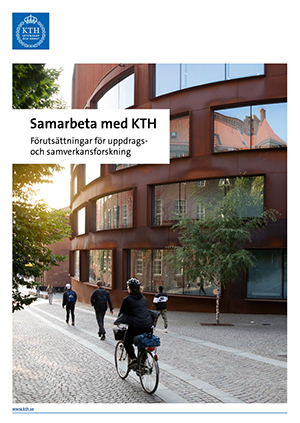Strategic collaborations at KTH and ITM
The goal of our strategic partnerships is to develop long-term cooperation for mutual benefit. For KTH's partners, this means a supply of skills, access to knowledge and cutting-edge research, increased competitiveness and the innovation abilities. For KTH, this means possibilities for developing new research areas, increased quality of education and research as well as strengthened innovation ability among our students, teachers and researchers.

KTH has strategic partnerships with large global companies and organizations in the public sector that are of particular importance to KTH's operations. The strategic partnerships mean an enhanced global outlook for KTH, and provide insights into the development, needs, challenges and strategies of important sectors. Partnerships are based on trusting relationships and mutual understanding of the different roles organizations play in society, ranging from the highest management level to individual projects.
Areas for strategic collaborations
KTH has partnerships in three different areas:
- Global companies – for knowledge development, technology development, skills supply and strengthened competitiveness
- Public sector – for understanding societal challenges and prioritized issues to jointly address
- Leading research institutes – for knowledge building and application.
Types of collaborations
The partnerships span KTH's entire operations and include the following types of collaborations:
Personal mobility
Collaborations where either a specialist from the business community spends part of his working time at KTH or where a KTH employee spends part of his time business / industry as an expert.
Skills supply and educational collaboration
Commitment in educational development and collaboration in the educations for strengthened relevance and quality. Partners have a great interest in recruiting engineers or doctors. Educational collaboration through dissertations carried out in collaboration with the partner and guest lectures / real challenges in educational programs.
Research collaboration
Joint applications for research grants for joint research projects and partner engagement in competence centers.
Sharing resources
Joint use of labs and other resources of an infrastructure nature at KTH or at the partner's site.
Regular meetings are held with all partners for synergies in initiatives and consensus to create favorable conditions for strengthened collaboration and a strengthened ability to mobilize for major initiatives both nationally and internationally. Joint meetings take place at the highest management level as well as more thematic in-depth studies with relevant roles.


